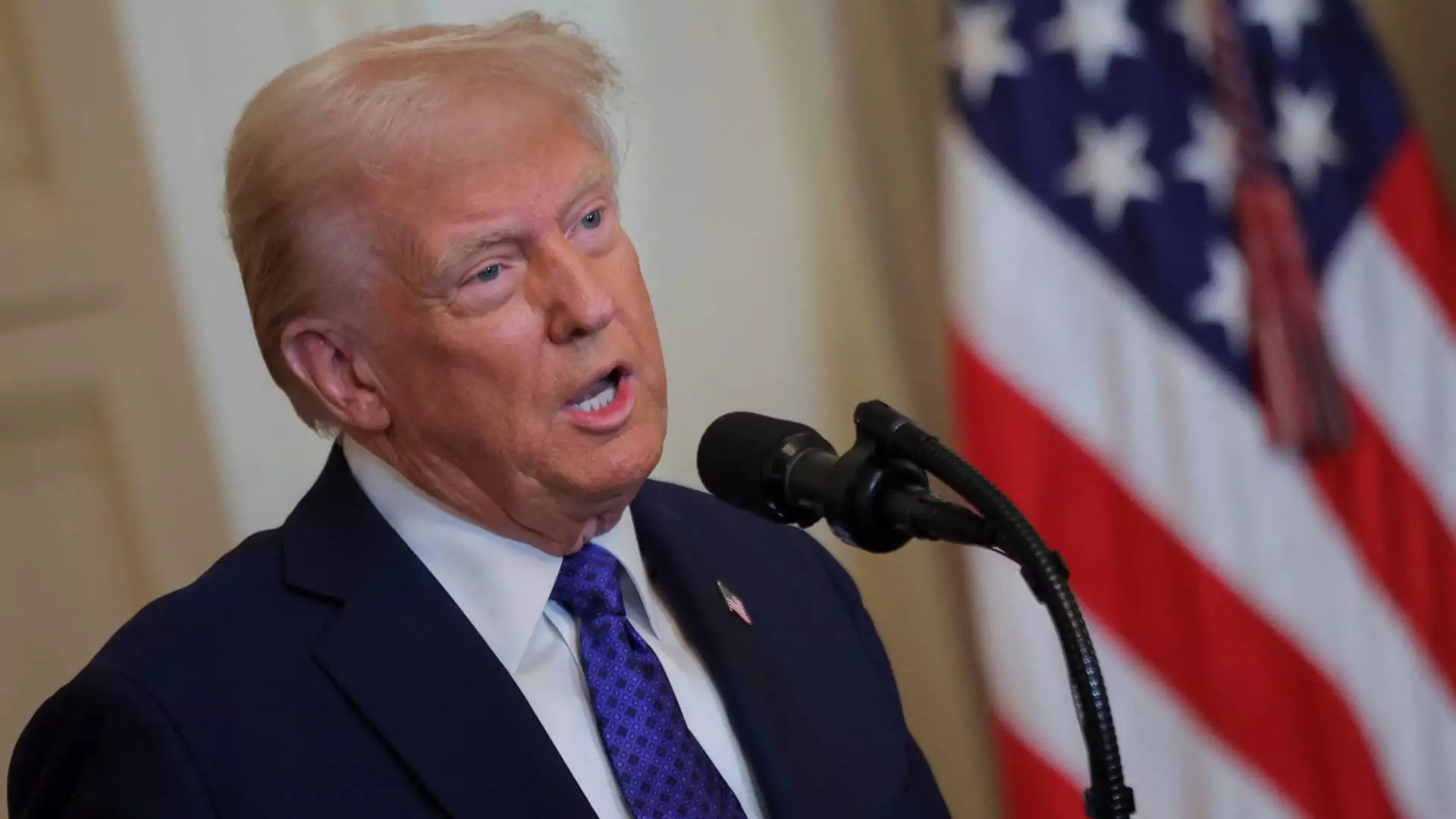The arrival of the Trump administration heralds a wave of potential financial transformations, particularly favoring the robust sectors of big banks and small-cap stocks. Predictions are surfacing that a period of deregulation could serve as the catalyst for a new era of growth in the finance industry. John Davi, founder of Astoria Portfolio Advisors, paints a bullish picture for large-cap banks, noting a series of favorable conditions that could lead to a long-term rally. Davi contends that these financial giants—such as Goldman Sachs, JPMorgan Chase, and Bank of America—are not just riding the political wave; they were already attractive investments prior to this administration’s emergence.
A look at recent stock performance shows a significant inclination towards these money center banks—many of their stocks reached record highs recently, illustrating investor confidence. Invesco’s KBW Bank ETF, which encapsulates the performance of top banking institutions, has seen remarkable growth since the start of the year. Up 10% year-to-date and an impressive 49% over the past year, this trend reinforces Davi’s assertion regarding the prospects of quality financial investments in the current political climate.
Contrasting the soaring big banks are small-cap stocks, which are poised to gain traction as American economic policies shift focus towards domestic production and business. Todd Rosenbluth from VettaFi suggests that small-cap companies might thrive under the Trump administration, primarily due to their limited exposure to international markets. The anticipated reshoring of manufacturing jobs and the imposition of tariffs on foreign goods could create a fertile ground for these small entities, which are more rooted in local markets than their larger counterparts.
Rosenbluth endorses several exchange-traded funds (ETFs) as ideal vehicles for capitalizing on small-cap growth. Notably, the T. Rowe Price Small-Mid Cap ETF and the Neuberger Berman Small-Mid Cap ETF could serve as integral parts of an investor’s portfolio during this transformative phase. With their focus on domestic growth, these funds are positioned to benefit from heightened economic nationalism.
Additionally, the VictoryShares Small Cap Free Cash Flow ETF stands out due to its strategy of targeting quality companies trading at discount valuations yet possessing favorable growth trajectories. Its portfolio features strong holdings in biotech, including names like Royalty Pharma and Jazz Pharmaceuticals, signifying a positive trend towards companies that not only generate solid cash flow but are also likely to expand in the current climate. Market performance has been encouraging as this ETF registered a nearly 10% gain over the past year, making it an appealing option.
Navigating the fluctuations of the stock market during politically charged times can be a daunting task for investors. As opportunities arise in big banks and small cap stocks, it is imperative for investors to consider their strategies meticulously. With deregulation spurring increased IPO activity and M&A deals, the potential upside in banking stocks seems significant. For those eyeing the small-cap sector, the adaptability of these companies to a shifting economic milieu represents an enticing prospect.
While the Trump administration’s policies may create a favorable environment for distinct market segments, investors must remain vigilant. Economic conditions can rapidly change, and the assumptions made about growth and stability may not always hold true. Individual diligence and a well-formed strategy will be key in reaping the benefits of these emerging opportunities.
Both big banks and small-cap stocks present a landscape filled with potential under the Trump administration. For investors, the challenge lies in discerning the best entry points and identifying particular funds or stocks that align with their investment philosophies. Whether one opts for established financial institutions or smaller, agile firms, understanding the underlying market dynamics will be critical in steering investments toward long-term growth.

